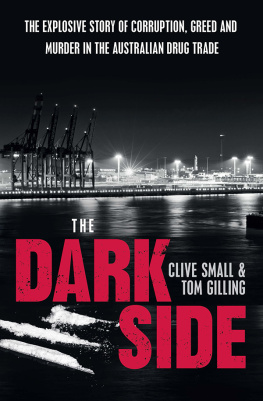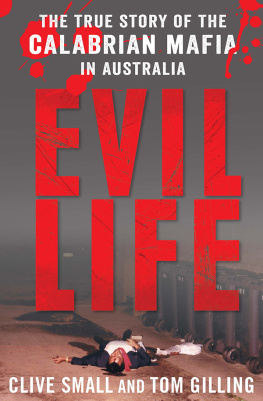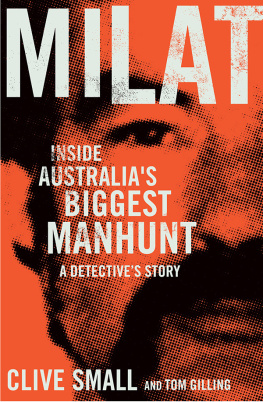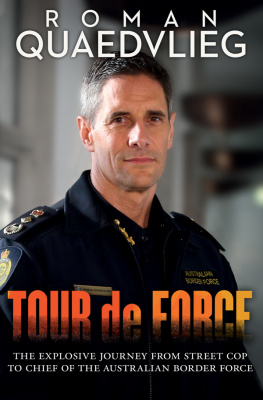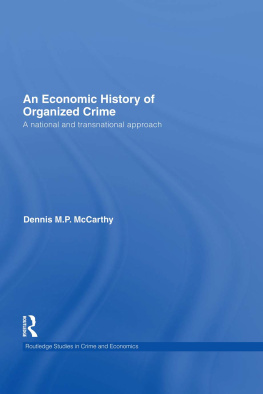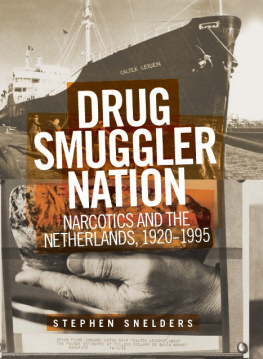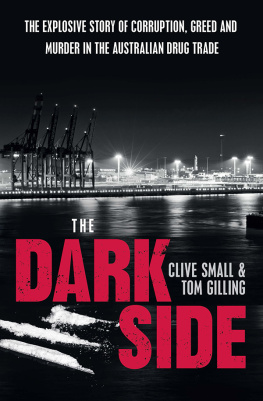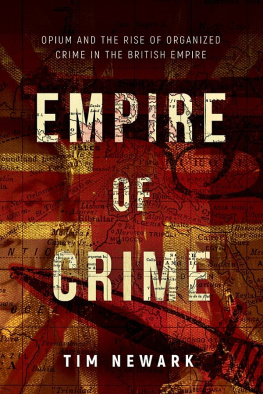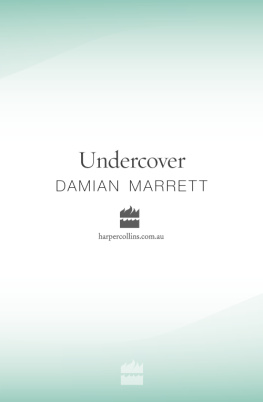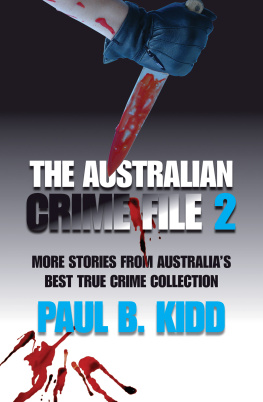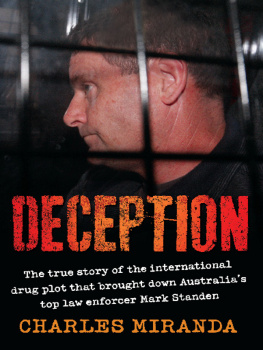Other books by Clive Small and Tom Gilling
Smack Express: How organised crime got hooked on drugs
Blood Money: Bikies, terrorists and Middle Eastern gangs
Betrayed: The shocking story of two undercover cops
Milat: Inside Australias biggest manhunta detectives story
Evil Life: The true story of the Calabrian Mafia in Australia
First published in 2017
Copyright Clive Small and Tom Gilling 2017
All rights reserved. No part of this book may be reproduced or transmitted in any form or by any means, electronic or mechanical, including photocopying, recording or by any information storage and retrieval system, without prior permission in writing from the publisher. The Australian Copyright Act 1968 (the Act) allows a maximum of one chapter or 10 per cent of this book, whichever is the greater, to be photocopied by any educational institution for its educational purposes provided that the educational institution (or body that administers it) has given a remuneration notice to Copyright Agency (Australia) under the Act.
Allen & Unwin
83 Alexander Street
Crows Nest NSW 2065
Australia
Phone: (61 2) 8425 0100
Email:
Web: www.allenandunwin.com
Cataloguing-in-Publication details are available from the National Library of Australia
www.trove.nla.gov.au
ISBN 9781743311523
eISBN 9781742698922
Index by Puddingburn
Set by Midland Typesetters, Australia
Cover design: Lewis Csizmazia
Cover photographs: Getty Images (dockyards); Shutterstock (cocaine)
1985
We are dangerously close to ruination point the hour is late. The title of this book [A Quarter to Midnight] carries my message.
Athol Moffitt, A Quarter to Midnight
2001
In the years that have followed 1985, an appraisal of what is contained in this Commentary merits the conclusion that A Quarter to Midnight on Justice Moffitts clock in 1985 has now become 23:55 on our computer or other digital screen.
National Crime Authority, Organised Crime in Australia
2010
Organised crime poses a threat to Australias national security.
Australian Crime Commission, Organised Crime in Australia (2010)
2016
According to the United Nations Office on Drugs and Crime, organised crime has gone global with illicit goods being sourced from one continent, trafficked across another and marketed in a third Transnational crimes currently posing the greatest threat to Australia are people smuggling, human trafficking especially for the sex industry, illicit drug trafficking and high tech crime.
Australian Institute of Criminology, www.aic.gov.au/crime_types/transnational/other.html
Contents
This book is a sequel to Smack Express: How organised crime got hooked on drugs and Blood Money: Bikies, terrorists and Middle Eastern gangs. While organised crime groups engage in a wide variety of criminal activity, including fraud, identity crime, high-tech crime, human slavery, tax evasion and money laundering, we have once again focused on their primary source of income: the drug trade. According to the Australian Crime Commissions report Organised Crime in Australia 2011, Australians are among the worlds highest per capita consumers of illicit stimulants, and drug prices in Australia far exceed prices overseas, making domestic drug production and importation highly profitable. At a conservative estimate organised crime in Australia is worth $15 billion every year, half of which comes from illicit drugs. Indirect costs associated with drug addiction, family relations and community violence add more than $8 billion annually to this estimate. Each year at least $10 billion is laundered in and through Australia. Much of this money is derived from illicit drugs.
Our sincere thanks to those on both sides of the lawmany of whom must remain namelesswho helped directly or indirectly in the writing of this book. Thanks also to the journalists who over the decades have reported fearlessly on the growth and influence of organised crime.
Special gratitude to ABC TVFour Corners, Bob Bottom, Peter Butt, John Cushion, Michael Kennedy, Lorna Knowles, Michael McGann, Jayson McLeod, Neil Mercer, Charles Miranda, Brian Murphy, Michael Purchas, Lloyd Saxon, Adam Shand, Bob Small, John Sylvester, Ray Tinker, Dylan Welch, Kate McClymont and Marian Wilkinson for their support and advice.
In 2008 Clive Small and Tom Gilling published the bestselling book Smack Express: How organised crime got hooked on drugs, which exposed the growth and transformation of organised crime in Australia since the late 1960s. They followed this with Blood Money: Bikies, terrorists and Middle Eastern gangs, Betrayed: The shocking story of two undercover cops, Milat: Inside Australias biggest manhunta detectives story, and in 2016, Evil Life: The true story of the Calabrian Mafia in Australia.
CLIVE SMALL is a 38-year New South Wales police veteran. Much of his time was spent in criminal investigation. He was awarded several commendations. From 197780 he worked as an investigator with the Woodward Royal Commission into Drug Trafficking. During 198788 he was an investigator on Strike Force Omega, which reinvestigated the 1984 shooting of Detective Michael Drury. In the early 1990s Small led the backpacker murder investigation that resulted in the conviction of Ivan Robert Milat for the murder of seven backpackers in the Belanglo State Forest, south of Sydney, between 1989 and 1992. In 2001, as head of the Greater Hume Police Region, he helped dismantle the Vietnamese street gangs that had made Cabramatta Australias heroin capital. After retiring from the police force he joined the New South Wales Independent Commission Against Corruption as the executive director of operations. Since March 2007 he has been writing full-time.
TOM GILLINGs first two novels, the The Sooterkin (1999) and Miles McGinty (2001), were both shortlisted for major awards and chosen as notable books of the year by the New York Times. They have been translated into several languages. His third novel, Dreamland, has been published in Australia, Britain and the United States. As a journalist he has worked for numerous publications including the Sydney Morning Herald, Rolling Stone, the Guardian (UK) and the New York Times. Before Smack Express he co-wrote two non-fiction books, Trial and Error (1991), about the Israeli nuclear whistleblower Mordechai Vanunu, and Bagman: The final confessions of Jack Herbert (2005), about the events that led to the Fitzgerald Inquiry into police corruption in Queensland.
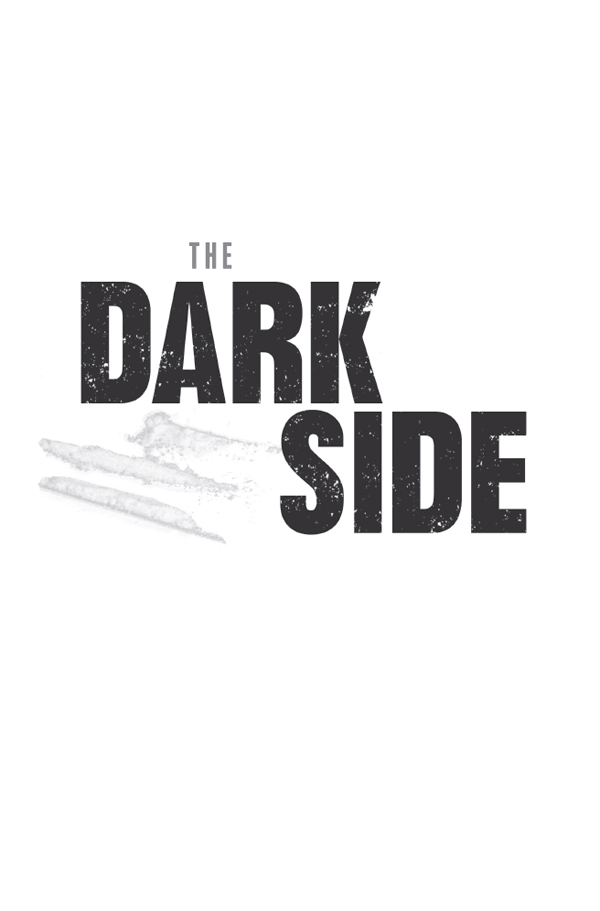
Mark Standen spent 33 years in federal and state law enforcement before he was arrested in 2008, at the age of 51, and charged with conspiring to import pseudoephedrine, a precursor for the manufacture of methamphetamine. Three years later he was convicted and jailed for 22 years.
Standen had risen to become the third most powerful figure in the secretive New South Wales Crime Commission. His ignominious fall left a stain on the Crime Commission and on the people who worked there, and raised serious questions about the capacityand even the commitmentof both the New South Wales Police and the New South Wales Police Integrity Commission to prevent corruption. But the evidence given by the prosecution during his five-month trial told only part of the extraordinary story of Mark Standens career, which carried him almost to the top of Australian law enforcement despite irrefutable evidence of his dishonesty.

